SMEs at the heart of the European Union’s new industrial strategies, with the light metal in a leading role
by Mario Conserva
For years, we have been claiming that small and medium-sized enterprises are, especially for the Old Continent, the battlefield for the future. It is therefore good news for us that the European Union has chosen to put at the heart of the new plan for sustainable, digitised industrial development, precisely SMEs, this differentiated multitude of businesses from which we are truly demanding so much: maintaining a high level of activity and creativity, with all the uncertainties of the entrepreneurial dimension; being competitive and facing the growing, tough and often unregulated international competition; being flexible and able to adapt to the sudden changes in the global scenario; participating on an equal level with large corporations in the fight against climate change and in the EU’s ambitious environmental policies for a zero-emission economy; bearing the brunt of the hefty costs of digitisation in order to remain a leader in the industry 4.0 context.
The EU’s challenge has many fierce fronts and adversaries, it is difficult to tackle without adequate strategies, and it is more appropriate than ever, all the more so in the midst of the Covid-19 storm, to which we are dedicate extensive coverage in this issue of the magazine. The path indicated by the EU is clear: increasing investment in research, innovation, implementation and updated infrastructure. All this is in the line of developing new production processes and creating jobs in the process.
From the standpoint of the aluminium chain, there is the certainty that this industrial system must become stronger in the spirit of an environmentally friendly circular economy, having as pillars the secure supply of energy and non-polluting raw materials at competitive conditions. We have supported these positions continuously over the past twenty years and today we have the satisfaction of seeing at the centre of the agenda SMEs, a melting pot of companies which do not have, and perhaps do not want, too much visibility, but without which there is no growth or jobs. We support the EU’s ambitious plan with the pride of having always taken the side, in the case of the aluminium supply chain, of this too often silent and unrepresented segment. We now hope that the facts will follow, let us release the energy and vitality of aluminium SMEs without the old constraints of prejudices, partisan cunning and petty power games.
And let us try to strongly support the principle of the low-carbon metal, a choice which can mean a lot even for downstream’s procurement policies, in a European Union which, after having lost so many positions in the segment, must look to a primary metal with a low-carbon footprint, favouring its procurement, and must give more decisive support to the production segment of the virtuous recycling metal.
